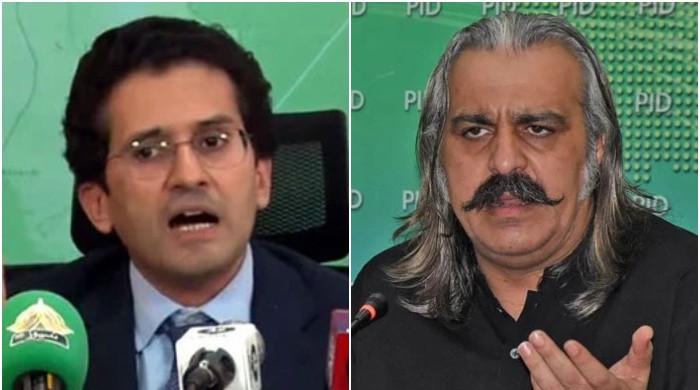Inquiry board recommends reinstating IBA officer sacked over harassment charge
Committee observes that proceedings of internal inquiries were not as per IBA's Act and protocols
November 13, 2021

- IBA HR director says he was targeted unfairly by institute's higher-ups.
- Sindh govt body finds IBA internal probe was conducted without due process.
- Committee says IBA HR director be paid full salary during the suspension period as his suspension was not according to the rules.
KARACHI: An inquiry committee that was formed to hear the appeal of an employee of the Institute of Business Administration (IBA), who was fired over harassment and misconduct charges, has recommended his reinstatement.
According to report inThe News, IBA Human Resource Director Mashooque Ali Bhatti had filed an appeal on September 18 with the Sindh Universities and Boards Department after a three-member board was constituted to investigate his claims.
The IBA HR director had claimed that he was targeted by the higher-ups of the institute who formed an inquiry committee to probe allegations of harassment but when that committee absolved him, another committee was formed by those higher-ups that recommended his dismissal.
Begum Nusrat Bhutto Women University Sukkur Acting Vice-Chancellor (VC) Prof Dr Samreen Hussain was the convener of the committee. Its other members included Sindh Agriculture University VC Prof Dr Fateh Muhammad Marri and IBA Assistant Professor Dr Huma Naz Baqai.
In its report, the committee stated that it had not found Bhatti guilty of any charges framed against him and the institute had dismissed him without following the proper rules and regulations.
Findings
Upon completing the investigations, which included reviewing the relevant documents and reports, and interviewing the appellant and IBA officials, the three-member committee, in its report, maintained that the internal inquiries initiated by the IBA against the applicant did not follow the protocols, and their proceedings were not in accordance with the IBA Act.
The committee observed anomalies in the notifications issued by the IBA for the constitution of internal inquiry committees to investigate allegations of misconduct against Bhatti.
The first notification that was provided to the three-member committee was issued on August 4. However, it carried the word ‘revised’, which clearly meant that there was another notification prior to that, which was not provided to the committee.
The committee also observed that the proceedings of the internal inquiries were not as per the IBA Act and protocols. When the committee requested the IBA management to provide a copy of the HR policy, it was provided a document titled ‘Grievance Handling and Managing Code of Conduct Violations’, which was neither comprehensive enough to cover the instant case nor had been applied to the case. Also the policy document was not approved by the IBA Board of Governors, the report reads.
The committee also noted that during the process of dismissal, the IBA HR director was not given a fair chance of his defence, which was a basic requirement of justice.
“The decision [dismissal of Bhatti] was made in haste without getting approval and following the protocol. The decision of dismissal from the board was not unanimous,” the report reads.
The committee stated that the registrar office leadership team was tasked with conducting the internal inquiry, which was a non-statutory body internally formed through directives of the IBA executive director.
It was also stated in the report that even if the appellant had committed the offence, it would be a first-time offence and the suggested list of disciplinary actions, which could have been taken as per the IBA rules, included verbal warnings, written warnings, transfer to another position, demotion, and withholding promotion or increment.
‘Dismissed without due process'
The committee recommended that Bhatti be reinstated because he was not dismissed via proper procedure and it did not find him guilty of any charges framed against him.
It added that the IBA HR director be paid his full salary during the suspension period as his suspension was not according to the rules in place.
The report, however, reads that it seemed that Bhatti had encouraged students to raise their concerns, which he should not have done being a senior officer in the HR department.
Personal WhatsApp messages were used as evidence against him; however, they could not establish any major offence and he could have been given a warning to avoid such interaction with students in his personal capacity in the future.











